26 Oct 2017 | Mapping Media Freedom, media freedom featured, News and features
[vc_row][vc_column][vc_column_text]
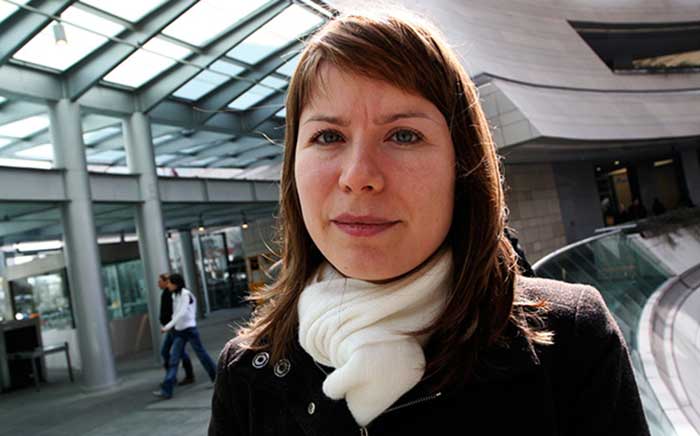
Wall Street Journal reporter Ayla Albayrak
Last week, a reporter for the Wall Street Journal was convicted of producing “terrorist propaganda” in Turkey and sentenced to more than two years in prison.
Ayla Albayrak was charged over an August 2015 article in the newspaper, which detailed government efforts to quell unrest among the nation’s Kurdish separatists, “firing tear gas and live rounds in a bid to reassert control of several neighborhoods”.
Albayrak was in New York at the time the ruling was announced and was sentenced in absentia but her conviction forms part of a growing pattern of arrests, detentions, trials and convictions for journalists under national security laws – not just in Turkey, the world’s top jailer of journalists, but globally.
As security – rather than the protection of fundamental rights and freedoms – becomes the number one priority of governments worldwide, broadly-written security laws have been twisted to silence journalists.
It’s seen starkly in the data Index on Censorship records for a project monitoring media freedom in Europe: type the word “terror” into the search box of Mapping Media Freedom and more than 200 cases appear related to journalists targeted for their work under terror laws.
This includes everything from alleged public order offences in Catalonia to the “harming of national interests in Ukraine” to the hundreds of journalists jailed in Turkey following the failed coup.
This abusive phenomenon started small, as in the case of Turkey, with dismissive official rhetoric that was aimed at small segments — like Kurdish journalists — among the country’s press corps, but over time it expanded to extinguish whole newspapers or television networks that espouse critical viewpoints on government policy.
While Turkey has been an especially egregious example of the cynical and political exploitation of terror offenses, the trend toward criminalisation of journalism that makes governments uncomfortable is spreading.

Mónica Terribas, journalist for Catalunya Rádio
In Spain, the Spanish police association filed a lawsuit against Mónica Terribas, a journalist for Catalunya Rádio, accusing her of “favouring actions against public order for calling on citizens in the Catalonia region to report on police movements during the referendum on independence.
The association said information on police movements could help terrorists, drug dealers and other criminals.
Undermining state security is a growing refrain among countries seeking to clamp down on a disobedient media, particularly in countries like Russia. In December 2016, State Duma Deputy Vitaly Milonov urged Russia’s Prosecutor General to investigate independent Latvia-based media outlet Meduza’s on charges of “promoting extremism and terrorism” for an article published the day before.
The piece written by Ilya Azar entitled, When You Return, We Will Kill You, documents Chechens who are leaving continental Europe through Belarussian-Polish border and living in a rail station in Brest, a border city in Belarus. Deputy Milonov said he considers the article a provocation aimed at undermining unity of Russia and praising terrorists.
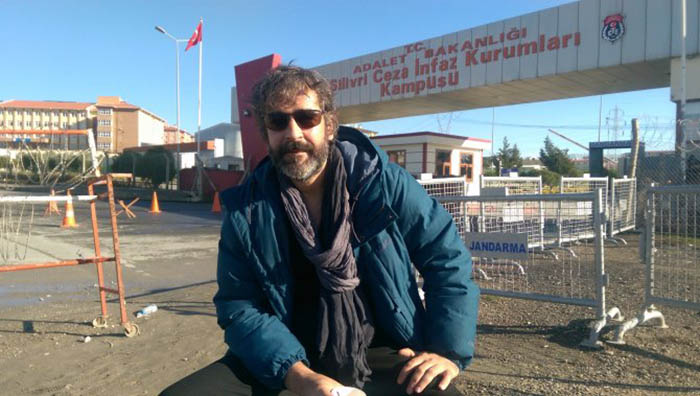
German journalist Deniz Yucel
In Turkey, reporting deemed critical of the government, the president or their associates is being equated with terrorism as seen in the case of German journalist Deniz Yucel who was detained in February this year.
Yucel, a dual Turkish-German national was working as a correspondent for the German newspaper Die Welt. He was arrested on charges of propaganda in support of a terrorist organization as well as inciting violence to the public and is currently awaiting trial, something that could take up to five years.
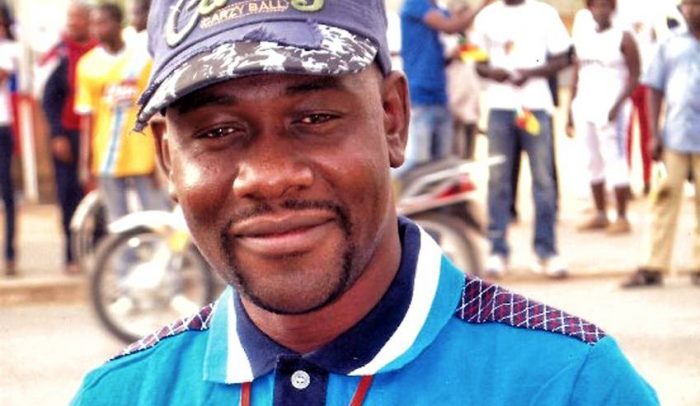
Ahmed Abba
Outside of the European region, journalists regularly fall foul of national security laws. In April, journalist Ahmed Abba was sentenced to 10 years behind bars by a military tribunal in Cameroon after being convicted of non-denunciation of terrorism and laundering of the proceeds of terrorist acts. Accompanying the decade-long sentence was a fine of over $90,000 dollars. Abba, a journalist for Radio France International, was detained in July of 2015. He was tortured and held in solitary confinement for three months.
The military court allegedly possessed evidence against Abba, who was barred from speaking with the media during his trial, which they found on his computer. Among the alleged evidence was contact information between Abba and the Islamist terrorist group Boko Haram. Abba, who was in the area to report on the Boko Haram conflict, claimed he obtained the information that was discovered on his phone from various social media outlets with the intent of using them for his report.
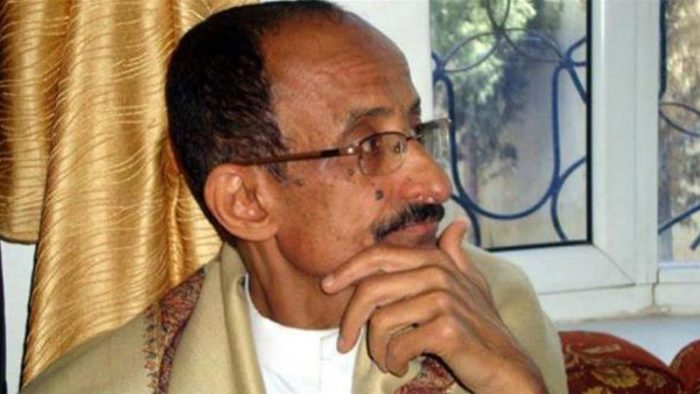
Yemeni journalist Yahya Abduraqeeb al-Jubaihi
Yemeni journalist Yahya Abduraqeeb Al-Jubaihi was sentenced to death earlier this month for allegedly serving as an undercover spy for Saudi Arabian coalition forces. Al-Jubaihi, who has worked as a journalist for various Yemeni and Saudi Arabian newspapers, has been held in a political prison camp ever since he was abducted from his home in September 2016.
Al-Jubaihi is the first journalist to be sentenced to death in Yemen following a trial that many activists believe was politically motivated because of Al-Jubaihi’s columns criticising Houthis.
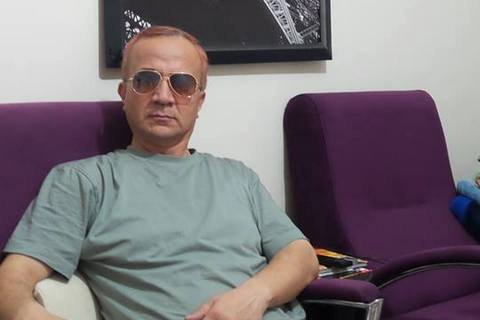
Journalist Narzullo Akhunjonov
Increasingly, governments are turning to Interpol to target journalists under terror laws. Turkey has filed an application to seek an Interpol arrest warrant for Can Dündar, demanding the journalist’s extradition. In September, Uzbek journalist Narzullo Okhunjonov was detained by authorities in Ukraine following an Interpol red notice.
Uzbek authorities have issued an international arrest warrant on fraud charges against Okhunjonov, who had been living in exile in Turkey since 2013 in order to avoid politically motivated persecution for his reporting.
And governments are also using terror laws to spy on journalists. In 2014, the UK police admitted it used powers under terror legislation to obtain the phone records of Tom Newton Dunn, editor of The Sun newspaper, to investigate the source of a leak in a political scandal. Police powers under the Regulation of Investigatory Powers Act, which circumvents another law that requires police to have approval from a judge to get disclosure of journalistic material.
No laughing matter

The Sun editor Tom Newton Dunn
Even jokes can land journalists in trouble under terror laws. Last year, French police searched the office of community Radio Canut in Lyon and seized the recording of a radio programme, after two presenters were accused of “incitement to terrorism”.
Presenters had been talking about the protests by police officers that had recently been taking place in France. One presenter said: “This is a call to people who people who killed themselves or are feeling suicidal and to all kamikazes” and to “blow themselves up in the middle of the crowd”.
One of the presenters was put under judicial supervision and was forbidden to host the radio programme until he appeared in court.
Radio Canut journalist Olivier Combi explained that the comment was ironic: “Obviously, Radio Canut is not calling for the murder of police officers, as it was sometimes said in the press”, he said. “Things have to be put back in context: the words in question are a 30 seconds joke-like exchange between two voluntary radio hosts…Nothing serious, but no media outlet took the trouble to call us, they all used the version of the police.”
Fighting back to protect sources
Two Russian journalists — Oleg Kashin and Alexander Plushev — are pushing back, Meduza reported. Kashin and Plushev filed the lawsuit challenging Russia’s Federal Security Service’s demands that instant messaging apps turn over encryption keys for users’ private communications, which is being driven by Russia’s anti-terror legislation. The court rejected the suit with the judge reportedly found that the government’s demands do not infringe on Plushev’s civil rights.
The journalists had contended that the FSB’s demand violated their right to confidential conversations with sources. Kashin said that in his work as a journalist he had come to rely on apps such as Telegram to conduct interviews with politicians.
Human rights organisation Agora is representing Telegram in a separate case against the FSB, which has fined the app company for failing to comply with its demands.[/vc_column_text][vc_row_inner][vc_column_inner width=”1/2″][vc_single_image image=”96229″ img_size=”full” onclick=”custom_link” link=”https://www.indexoncensorship.org/2017/10/turkish-injustice-scores-journalists-rights-defenders-go-trial/”][/vc_column_inner][vc_column_inner width=”1/2″][vc_column_text]
About 90 journalists, writers and human rights defenders will appear before courts in the coming days[/vc_column_text][/vc_column_inner][/vc_row_inner][vc_row_inner][vc_column_inner width=”1/2″][vc_single_image image=”96183″ img_size=”full” onclick=”custom_link” link=”https://www.indexoncensorship.org/2017/10/interpol-the-abuse-red-notices-is-bad-news-for-critical-journalists/”][/vc_column_inner][vc_column_inner width=”1/2″][vc_column_text]
Since August, at least six journalists have been targeted across Europe by international arrest warrants issued by Turkey, Azerbaijan, Uzbekistan and Kazakhstan[/vc_column_text][/vc_column_inner][/vc_row_inner][/vc_column][/vc_row][vc_row][vc_column][vc_custom_heading text=”Mapping Media Freedom” use_theme_fonts=”yes”][vc_separator color=”black”][vc_row_inner][vc_column_inner width=”1/4″][vc_icon icon_fontawesome=”fa fa-times-circle” color=”black” background_style=”rounded” size=”xl” align=”right”][/vc_column_inner][vc_column_inner width=”3/4″][vc_column_text]
Since 24 May 2014, Mapping Media Freedom’s team of correspondents and partners have recorded and verified 3,597 violations against journalists and media outlets.
Index campaigns to protect journalists and media freedom. You can help us by submitting reports to Mapping Media Freedom.[/vc_column_text][/vc_column_inner][/vc_row_inner][/vc_column][/vc_row][vc_row][vc_column][vc_custom_heading text=”Don’t lose your voice. Stay informed.” use_theme_fonts=”yes”][vc_separator color=”black”][vc_row_inner][vc_column_inner width=”1/2″][vc_column_text]Index on Censorship is a nonprofit that campaigns for and defends free expression worldwide. We publish work by censored writers and artists, promote debate, and monitor threats to free speech. We believe that everyone should be free to express themselves without fear of harm or persecution – no matter what their views.
Join our mailing list (or follow us on Twitter or Facebook) and we’ll send you our weekly newsletter about our activities defending free speech. We won’t share your personal information with anyone outside Index.[/vc_column_text][/vc_column_inner][vc_column_inner width=”1/2″][gravityform id=”20″ title=”false” description=”false” ajax=”false”][/vc_column_inner][/vc_row_inner][vc_separator color=”black”][/vc_column][/vc_row]
24 Oct 2017 | Mapping Media Freedom, Media Freedom, media freedom featured, News and features
[vc_row][vc_column][vc_column_text]
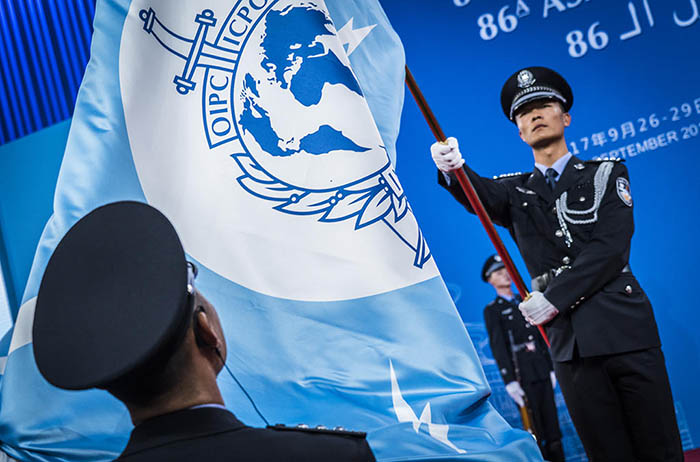
Interpol 86th general assembly (Credit: Interpol)
Red notices have become a tool of political abuse by oppressive regimes. Since August, at least six journalists have been targeted across Europe by international arrest warrants issued by Turkey, Azerbaijan, Uzbekistan and Kazakhstan.
“The use of the Interpol system to target journalists is a serious breach of media freedom. Interpol’s own constitution bars it from interventions that are political in nature. In all of these cases, the accusations against the journalists are politically motivated,” Hannah Machlin, project manager for Index on Censorship’s Mapping Media Freedom, said.
In the most recent case on 21 October, journalist and blogger Zhanara Akhmet from Kazakhstan was detained in Ukraine on an Interpol warrant and is currently in a temporary detention facility. Akhmet claims this red notice is politically motivated.
The journalist worked for an opposition newspaper, the Tribune, in Kazakhstan as well as documented human rights violations by the Kazakh authorities on a blog.
On 14 October, also in Ukraine, Azerbaijani opposition journalist Fikret Huseynli was detained at Kyiv Boryspil Airport.
Huseynli sought refuge in the Netherlands in 2006 and was granted citizenship two years ago. While leaving Ukraine, the journalist was stopped by Interpol police with a red notice issued at the request of the Azerbaijani authorities. He has been charged with fraud and illegal border crossing.
Because Huseynli holds a Dutch passport, he cannot be forcibly extradited to Azerbaijan, but he told colleagues he fears attempts to abduct him.
“The arrest of the Azerbaijani opposition journalist by the Ukrainian authorities at the request of the authoritarian government of Azerbaijan is a serious blow to the common European values such as protection of freedom of expression, which Ukraine has committed itself to respect as part of its membership in the Council of Europe and the OSCE,” IRFS CEO Emin Huseynov said.
On 17 October, Boryspil City District Court ruled to imprison Huseynli for 18 days at a pre-trial detention centre, Huseynli’s lawyer announced.
Huseynli’s arrest was the second time in a month that a journalist has been detained in Ukraine on a red notice.
On 20 September, authorities detained journalist Narzullo Okhunjonov, who had been seeking political asylum in Ukraine, under an Interpol red notice when he arrived from Turkey with his family. Okhunjonov writes from exile for sites including BBC Uzbek on Uzbekistan’s authoritarian government. Uzbekistan filed the international arrest warrant for the journalist on fraud charges. He denies the charges against him.
Five days after he was detained, a Kyiv court sentenced Okhunjonov to a 40-day detention while they decide whether to extradite him to his home country. [/vc_column_text][/vc_column][/vc_row][vc_row][vc_column width=”1/4″][vc_icon icon_fontawesome=”fa fa-times-circle” color=”black” background_style=”rounded” size=”xl” align=”right” link=”url:https%3A%2F%2Fmappingmediafreedom.org%2F%23%2F|||”][/vc_column][vc_column width=”3/4″][vc_column_text]
Since 24 May 2014, Mapping Media Freedom’s team of correspondents have recorded and verified 3,597 violations against journalists and media outlets.
Index campaigns to protect journalists and media freedom. You can help us by submitting reports to Mapping Media Freedom.[/vc_column_text][/vc_column][/vc_row][vc_row][vc_column][vc_column_text]Interpol warrants have also been issued in Spain.
Turkish journalist Doğan Akhanlı was detained while on vacation in Spain on 9 August. The journalist has lived in Cologne since 1992 where he writes about human rights issues, particularly the Armenian Genocide, which Turkey denies.
Turkey charged Akhanlı with armed robbery which supposedly occurred in 1989. After the charges were brought against him in 2010 and he was acquitted in 2011, the Supreme Court of Appeals overturned his acquittal and a re-trial began. Akhanlı faces “life without parole”.
Two weeks later, Interpol removed the warrant and Akhanlı was released. The decision was made after German chancellor Angela Merkel denounced the abuse of the Interpol police agency: “It is not right and I’m very glad that Spain has now released him. We must not misuse international organisations like Interpol for such purposes.”
Markel claimed Erdogan’s use of the international agency for political purposes was “unacceptable”.
Akhanlı’s detention came two weeks after Turkish journalist Hamza Yalçın was detained on 3 August at El Prat airport in Barcelona, where he was vacationing, Cumhuriyet reported. He holds a Swedish passport and has sought asylum there since 1984.
Yalçın is being accused of “insulting the Turkish president” and spreading “terror propaganda” for Odak magazine of which he was the chief columnist, according to a report by Evrensel.
Like Ukraine, Spain’s member state status in the Council of Europe also arises the question of their activity in the arrests of Akhanlı and Yalçın. “The latest cases of arrests of journalists in Ukraine and Spain on the basis of Interpol red notices … have extremely worrying implications for press freedom,” Rebecca Vincent UK Bureau Director for Reporters Without Borders, said. “Interpol reform is long overdue, and is becoming increasingly urgent as critical journalists are now at risk travelling even in Council of Europe member states”.
Turkey’s recent continued persecution of journalists through Interpol also reached as far as Germany. A Turkish prosecutor has requested the Turkish government issue a red notice through Interpol though it is unclear if it went through.
On 28 September 2017, the Diyarbakir Prosecutor’s Office filed an application to seek an Interpol red notice for Can Dündar, the former Editor-in-chief of Turkey’s anti-regime newspaper, Cumhuriyet. The demand for a red notice is based on a speech made by Dündar in April 2016, supposedly supporting the “terror propaganda” of the outlawed Kurdistan Workers’ Party (PKK).
Dündar fled Turkey for Germany in 2016.
On the same day, Peace Research Institute Oslo (PRIO) nominated Dündar and the Cumhuriyet newspaper for the Nobel Peace Prize.
“Turkey is no exception to using this system just as is Russia, Iran, Syria, and its close neighbour and ally Azerbaijan among other governments, where political direction does not necessarily align with democracy, respect for human rights and basic freedoms,” Arzu Geybulla, an Azerbaijani journalist and human rights activist said. “Targeting its citizens who have escaped persecution and have been forced to flee as a result of their opinions, is a worrying sign especially at a time, when over 160 journalists are currently behind bars in Turkey and thousands of people have lost their jobs, been arrested or currently face trials in the aftermath of the July coup.”
Although PACE has adopted a resolution condemning the abuses of Interpol red notices, a review of Interpol’s red notice procedure has yet to be adopted. Amid criticism from human rights activists, journalists, and even leaders like Angela Merkel, it is unclear if Interpol will make a change to their red notice regulations.[/vc_column_text][vc_row_inner][vc_column_inner][/vc_column_inner][/vc_row_inner][/vc_column][/vc_row][vc_row][vc_column][vc_basic_grid post_type=”post” max_items=”4″ element_width=”6″ grid_id=”vc_gid:1509034712367-374920af-c5df-6″ taxonomies=”6564″][/vc_column][/vc_row]
18 Oct 2017 | Campaigns -- Featured, Malta, media freedom featured, Statements
[vc_row][vc_column][vc_column_text]

Daphne Caruana Galizia
Sixteen press freedom groups condemn the killing of investigative journalist Daphne Caruana Galizia and demand an immediate and independent investigation into her death.
“The murder of a prominent investigative journalist in broad daylight in an EU Member State underscores the seriousness of this crime. Daphne Caruana Galizia’s work as a journalist to hold power to account and shine a light on corruption is vital to maintaining our democratic institutions. Her killing is a loss for her country and for Europe”, Hannah Machlin, project manager for Index on Censorship’s data platform Mapping Media Freedom, said.
Daphne Caruana Galizia was killed when the car she was driving exploded in Bidnija around 15.00 on 16 October in what is thought to have been a targeted attack..
“The barbaric murder of Daphne Caruana Galizia is an attack on journalism itself. This crime is meant to intimidate every investigative journalist,” Dr Lutz Kinkel, Managing Director of the European Centre for Press and Media Freedom, said.
“Because Prime Minister Joseph Muscat and parts of Malta’s political elite were targets of Galizia’s disclosures, we strongly recommend an independent investigation of this case. The killers have to be found and put on trial.”
The blast left her vehicle in several pieces and threw debris into a nearby field. Half an hour before the powerful explosion, the journalist posted a comment about a libel claim the prime minister’s chief of staff had brought against a former opposition leader over comments the latter made about corruption.
Galizia filed a police report 16 days ago saying she was being threatened.
Galizia had conducted a series of high profile corruption investigations and has been subject to dozens of libel suits and harassment. Because of her research, in February, assets were frozen following a request filed by Economic Minister Chris Cardona and his EU presidency policy officer Joseph Gerada.
On 24 August opposition leader Adrian Delia filed a lawsuit against her over stories linking him to offshore accounts totalling to £1 million earned from alleged prostitution in London flats. On 11 March Silvio Debono, owner of the real estate investment company DB Group, filed 19 libel cases against her after Caruana Galizia published a number of articles about his deals with the Maltese government to take over a large tract of high value public land.
Galizia also conducted an investigation linking the Prime Minister Joseph Muscat and his wife Michelle to secret offshore bank accounts to allegedly hide payments from Azerbaijan’s ruling family, which were unveiled in the Panama Papers. She worked on this investigation with her son Matthew Caruana Galizia, a journalist for the Pulitzer prize winning International Consortium of Investigative Journalists, who has had his posts on allegations of wrongdoing by Prime Minister Joseph Muscat and his associates censored on Facebook.
On 17 October 2017, her family filed an urgent application for the Duty Magistrate Consuelo Scerri Herrera to abstain from investigating Caruana Galizia’s murder because of the court’s “flagrant conflict of interest”. In 2011, the magistrate initiated court proceedings against the journalist over comments she had made about Magistrate Herrera.
Seven reports of violations of press freedom were verified in Malta in 2017, according to Index on Censorship’s Mapping Media Freedom project. Five of those are linked to Caruana Galizia and her family.
The murder has brought widespread condemnation from the international community including statements from Council of Europe Secretary General Thorbjørn Jaglan and OSCE’s Media Freedom Representative Harlem Désir.
We, the undersigned press freedom organisations call for:
— An independent and transparent investigation into the killing of Daphne Caruana Galizia
— Protection for her family members and for other Maltese journalists who have been under threat
— Measures to protect the environment for independent and critical journalism to ensure that reporters can work freely
———————————————————————
Article 19
The Association of European Journalists (AEJ)
The Center for Investigative Reporting
Committee to Protect Journalists
The European Centre for Press and Media Freedom
The European Federation of Journalists (EFJ)
Freedom of the Press Foundation
Index on Censorship
International News Safety Institute (INSI)
International Federation of Journalists (IFJ)
International Press Institute (IPI)
Osservatorio Balcani e Caucaso Transeuropa (OBCT)
Ossigeno per I’nformazione
Platform of Independent Journalism (P24)
Reporters Sans Frontieres (RSF)
South East Europe Media Organisation (SEEMO) [/vc_column_text][/vc_column][/vc_row][vc_row][vc_column][vc_basic_grid post_type=”post” max_items=”12″ style=”load-more” items_per_page=”4″ element_width=”6″ grid_id=”vc_gid:1508321261018-6a10a188-6c0b-6″ taxonomies=”8996″][/vc_column][/vc_row]
11 Oct 2017 | Campaigns -- Featured, Statements
[vc_row][vc_column][vc_column_text]
Update: On 6 October 2017, Pedro Agramunt announced his resignation as President of the Parliamentary Assembly of the Council of Europe (PACE).
We, members of the NGO coalition the Civic Solidarity Platform (CSP) and other NGOs across Europe, welcome the recent motion for dismissal of the President of the Parliamentary Assembly of the Council of Europe (PACE) Pedro Agramunt put forward by 158 members of the Assembly. We urge all its members to support this motion at the forthcoming session of the Assembly on 9 October 2017.
The no-confidence motion marks a historic opportunity to start the process of rebuilding PACE’s reputation as a defender of human rights and the rule of law.The Assembly has, for far too long, tolerated unethical and corrupt behaviour by some of its members,
The Assembly has, for far too long, tolerated unethical and corrupt behaviour by some of its members, as exposed in a number of credible investigative reports by several highly reputable NGOs and the media, most recently in the Azerbaijani Laundromat report by the Organised Crime and Corruption Reporting Project (OCCRP) and publications in over a dozen of media outlets in a number of European countries in September 2017. Unethical fostering of interests and corruption lasting for many years in PACE have strongly damaged the credibility of the Council of Europe.
The Assembly has allowed corrupt practices by certain governments of its member states, in particular Azerbaijan, to undermine its commitment to uphold fundamental values of human rights and democracy in the Council of Europe member states. This has dismayed human rights defenders in the Eastern Partnership states and beyond who looked to PACE and other representative bodies such as the European Parliament for support in defending these values.
The recent establishment of an independent external Investigation Body by PACE and plans to overhaul the PACE Code of Conduct for Members and to adopt declaratory requirements give us hope that the much-needed renewal of the Assembly will be irreversible and will not stop with the departure of the disgraced President. It also serves notice to all current and former members of PACE that corrupt practices will no longer be tolerated and enjoy impunity. This process must continue after the end of 2017 when the Independent Body is due to report and should lead to an investigation of allegations of corruption by the law enforcement bodies at the national level.
The investigations by OCCRP and others show that democratic parliamentary assemblies in the free world must remain vigilant against threats to their integrity from unscrupulous and cynical governments. Otherwise, the hope and support that these assemblies can extend to political prisoners and democrats who are working for human rights, free and fair elections, and the rule of law in the Council of Europe countries and elsewhere will continue to be undermined.
Signed by the following organisations:
1. Helsinki Foundation for Human Rights (Poland)
2. Centre for the Development of Democracy and Human Rights (Russia)
3. Center for Civil Liberties (Ukraine)
4. Human Rights Movement “Bir Duino-Kyrgyzstan” (Kyrgyzstan)
5. International Partnership for Human Rights (Belgium)
6. Kazakhstan International Bureau for Human Rights and the Rule of Law (Kazakhstan)
7. Public Verdict Foundation (Russia)
8. Regional Center for Strategic Studies (Georgia/Azerbaijan)
9. Promo LEX (Moldova)
10. The Netherlands Helsinki Committee (Netherlands)
11. Centre de la Protection Internationale (France)
12. Citizens’ Watch (Russia)
13. Committee Against Torture (Russia)
14. World Organisation Against Torture (OMCT)
15. Human Rights Centre “Viasna” (Belarus)
16. Association UMDPL (Ukraine)
17. Index on Censorship (United Kingdom)
18. International Rehabilitation Council for Torture Victims (Belgium)
19. Helsinki Committee of Armenia (Armenia)
20. Barys Zvozskau Belarusian Human Rights House (Belarus/Lithuania)
21. Helsinki Citizens’ Assembly-Vanadzor (Armenia)
22. Institute of Public Affairs (Poland)
23. Freedom Files (Russia/Poland)
24. Libereco – Partnership for Human Rights (Germany/Switzerland)
25. Bulgarian Helsinki Committee (Bulgaria)
26. Kharkiv Regional Foundation “Public Alternative” (Ukraine)
27. Human Rights Club (Azerbaijan)
28. Legal Transformation Center (Belarus)
29. Helsinki Committee for Human Rights in Serbia (Serbia)
30. Norwegian Helsinki Committee (Norway)
31. Public Association “Dignity” (Kazakhstan)
32. Human Rights Information Center (Ukraine)
33. “Protection of Rights without Borders” (Armenia)
34. Crude Accountability (USA)
35. DRA – German-Russian Exchange (Germany)
36. Institute for Reporters Freedom and Safety (IRFS) (Azerbaijan)
37. Moscow Helsinki Group (Russia)
38. Albanian Helsinki Committee (Albania)
39. Ukrainian Helsinki Human Rights Union (Ukraine)
40. Sova Center for Information and Analysis (Russia)
41. Kosova Centre for Rehabilitation of Torture Victims (Kosovo)
42. Truth Hounds (Ukraine)
43. Article 19 (United Kingdom)
44. Human Rights Matter (Germany)
45. Helsinki Association for Human Rights (Armenia)
46. Center for Participation and Development (Georgia)
47. Ukrainian Helsinki Human Rights Union (Ukraine)
48. Office of Civil Freedoms (Tajikistan)
49. Women of the Don (Russia)
50. Human Rights Monitoring Institute (Lithuania)
51. Media Rights Institute (Azerbaijan)
52. Batory Foundation (Poland)
53. International Youth Human Rights Movement
54. Institute for Peace and Democracy (Netherlands/Azerbaijan)
55. Monitoring Centre for Political Prisoners (Azerbaijan)
56. Democratic Civil Union of Turkmenistan (Turkmenistan/Netherlands)
57. Public Alliance “Azerbaijan without Political Prisoners” (Azerbaijan)
58. Humanrights.ch (Switzerland)[/vc_column_text][/vc_column][/vc_row]










